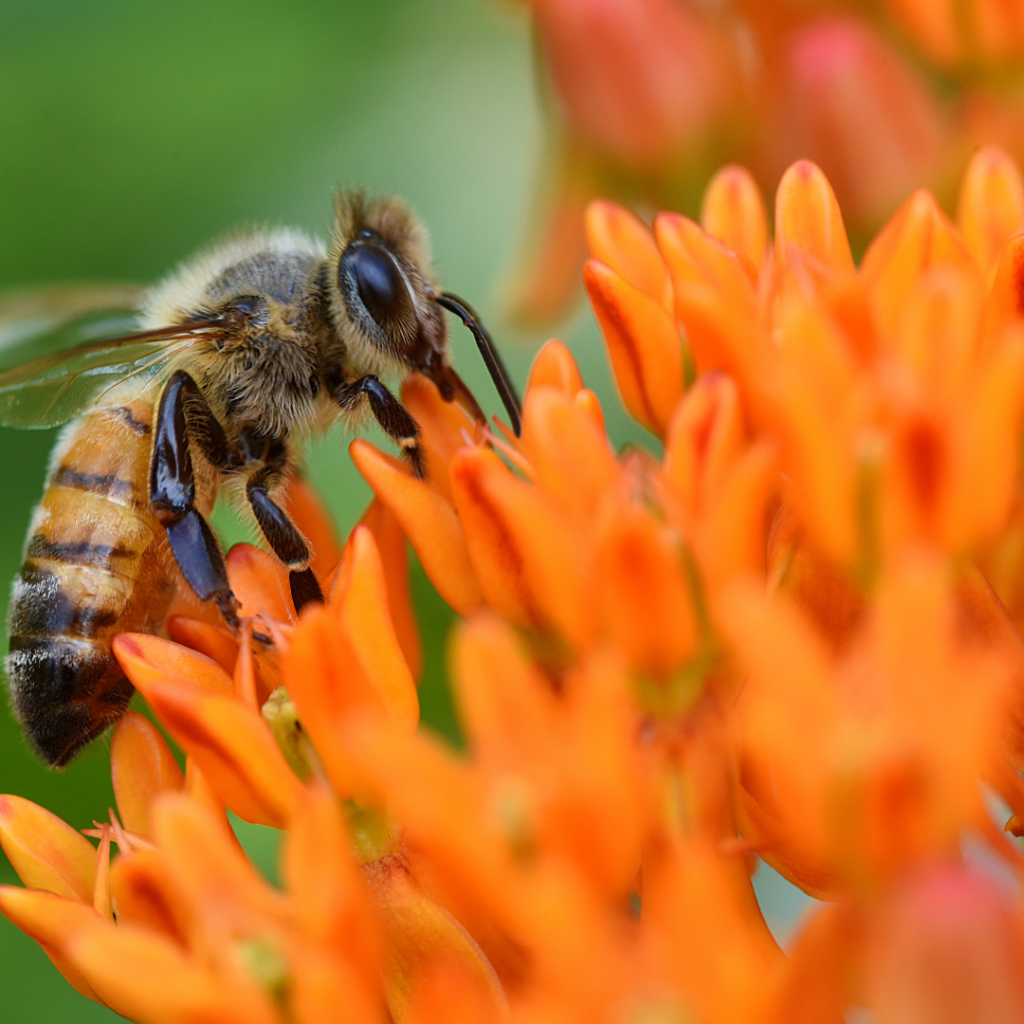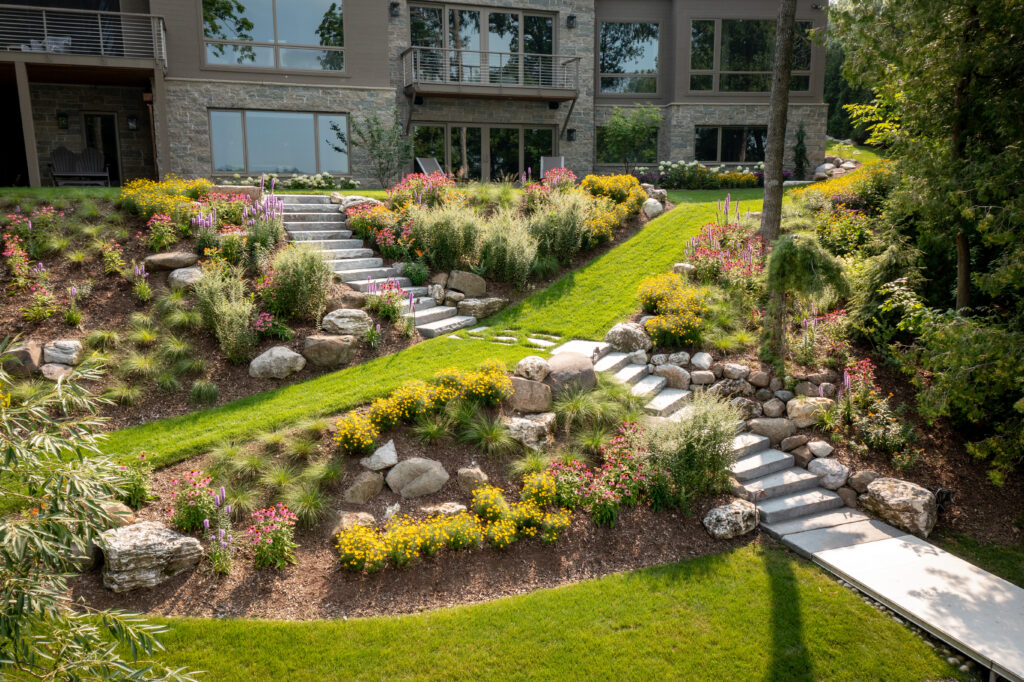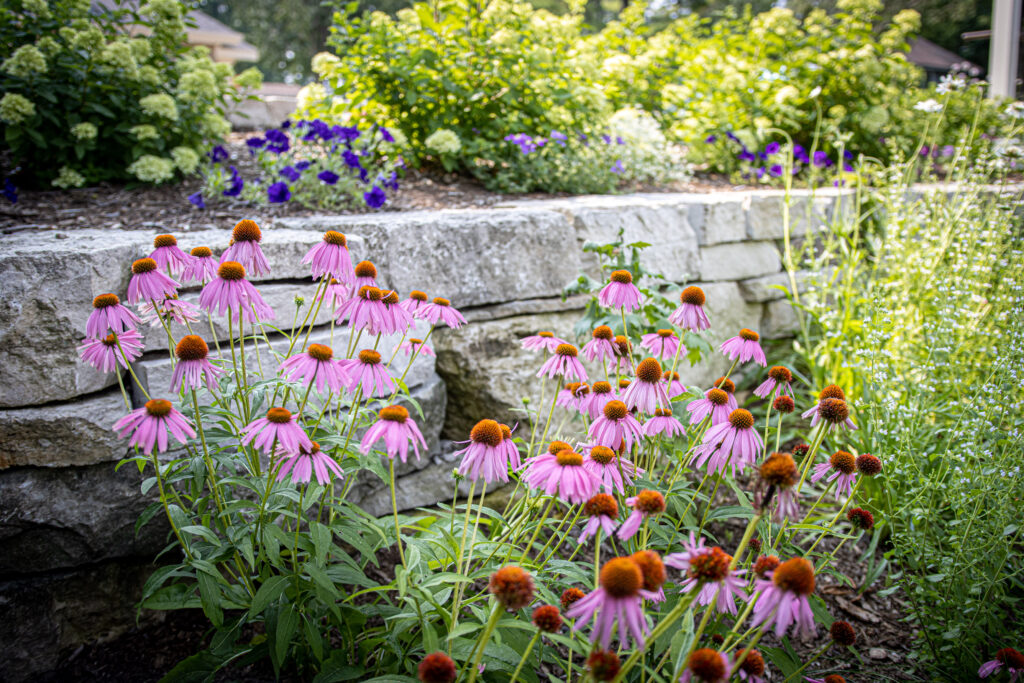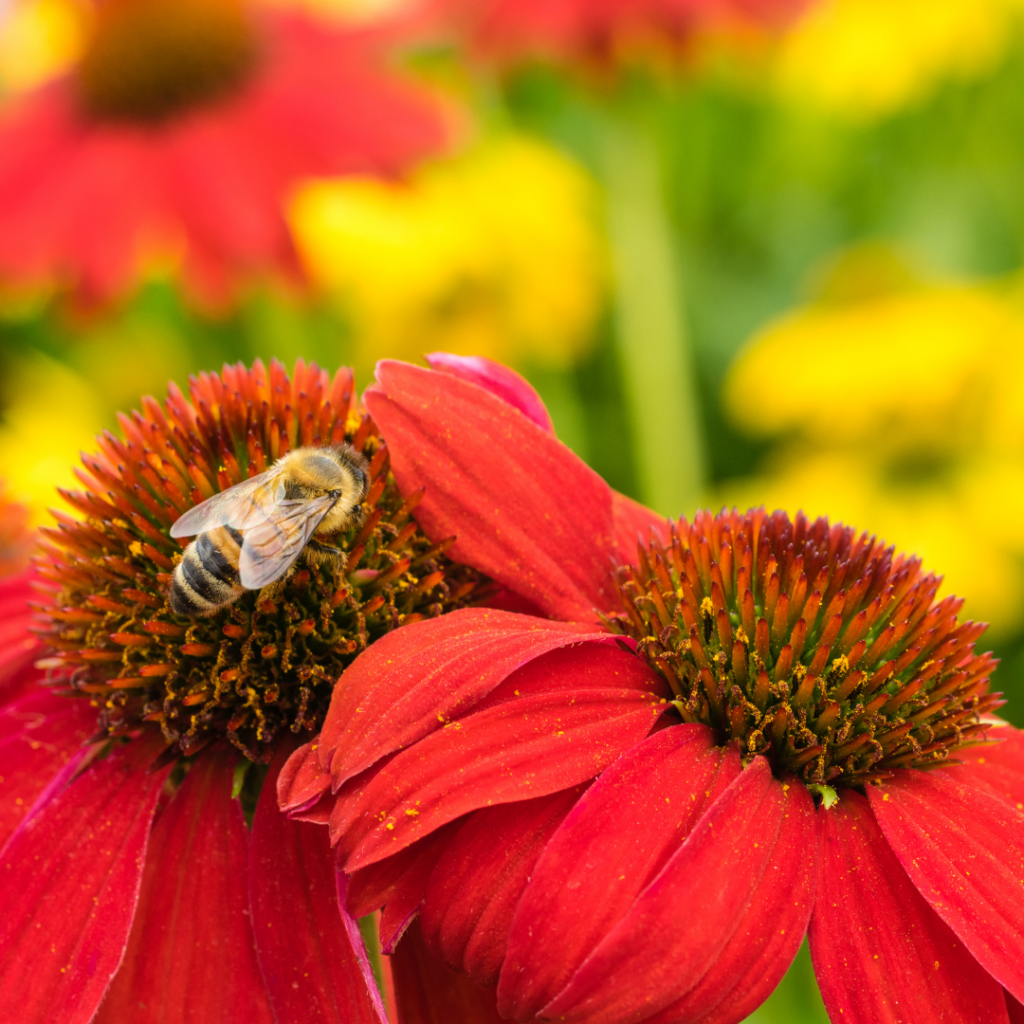
Landmark Landscapes’ mission is Art Through Ecology for more Vibrant Communities. Therefore, an event such as National Pollinator Week which extends from June 19th – 25th of 2023 is worth celebrating. As there are very few things that connect our creativity to science quite like pollinator gardens.
What are Pollinators?
Pollinators, such as bees, butterflies, and birds, play a vital role in our ecosystem by facilitating the reproduction of plants. Unfortunately, their populations have been declining due to habitat loss, pesticide use, and climate change. To address this issue and support pollinator populations, many gardeners and conservationists in Wisconsin have embraced the concept of pollinator gardens. These gardens are specifically designed to attract and support pollinators, providing them with food, shelter, and breeding grounds. The benefits of pollinator gardens in Wisconsin are numerous and far-reaching.
How Do Pollinator Gardens Work?

One of the primary advantages of pollinator gardens is the increased pollination of plants, which leads to improved yields for farmers and gardeners. By providing a diverse array of flowering plants, pollinator gardens attract a wide range of pollinators. These pollinators transfer pollen from one flower to another, aiding in fertilization and fruit production. In agricultural settings, this can result in higher crop yields, benefiting farmers and ensuring a stable food supply.
Pollinator gardens also contribute to the preservation of biodiversity. Wisconsin is home to numerous native pollinator species, some of which are in decline. By creating habitats that meet the specific needs of these pollinators, such as nectar-rich flowers and suitable nesting sites, pollinator gardens help to conserve these species. Preserving biodiversity is crucial for maintaining healthy ecosystems, as each species plays a unique role in the web of life.

Furthermore, pollinator gardens enhance the overall beauty of Wisconsin’s landscapes. These gardens burst with vibrant colors and attract a variety of fascinating insects and birds. Whether in urban areas, suburban neighborhoods, or rural settings, pollinator gardens create havens of natural beauty that can be enjoyed by people of all ages. They serve as educational tools, teaching children and adults alike about the importance of pollinators and the delicate balance of nature.
Pollinator Gardens and Climate Change
Another advantage of pollinator gardens is their potential to mitigate the effects of climate change. With changing climate patterns, pollinators face challenges such as altered flowering times and disrupted migration patterns. By providing a reliable food source throughout the seasons, pollinator gardens can support these insects and birds during periods of scarcity. Additionally, the increased vegetation in these gardens helps to absorb carbon dioxide, reducing greenhouse gas emissions and mitigating climate change.

Lastly, pollinator gardens promote community engagement and collaboration. Individuals, schools, and organizations can come together to establish and maintain these gardens, fostering a sense of shared responsibility for environmental stewardship.
Pollinator gardens in Wisconsin offer a range of benefits. They enhance pollination, support biodiversity, enhance the beauty of landscapes, mitigate climate change impacts, and foster community engagement. By establishing these gardens, individuals, and communities can make a significant contribution to the conservation of pollinators and the overall health of the environment.
Contact Us
Landmark Landscapes of Sheboygan Falls, WI is a full-service landscape company. Based out of Sheboygan County, with a satellite office in Green Lake, Wisconsin. We are centrally located and uniquely positioned to service the areas of Sheboygan, Elkhart Lake, Fond Du Lac County, Green Lake County, Ozaukee County, Manitowoc County, and Door County. We can manage your property with our Total Property Care system, and design and build projects large and small. Contact us today at 920-467-6442 to learn how we can care for you.